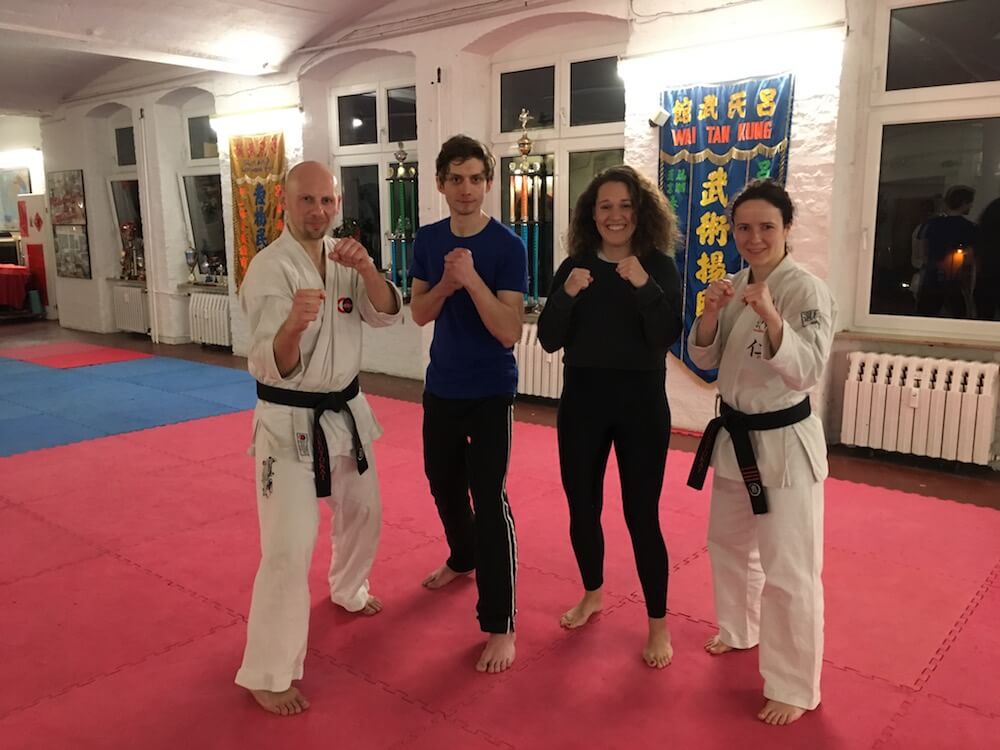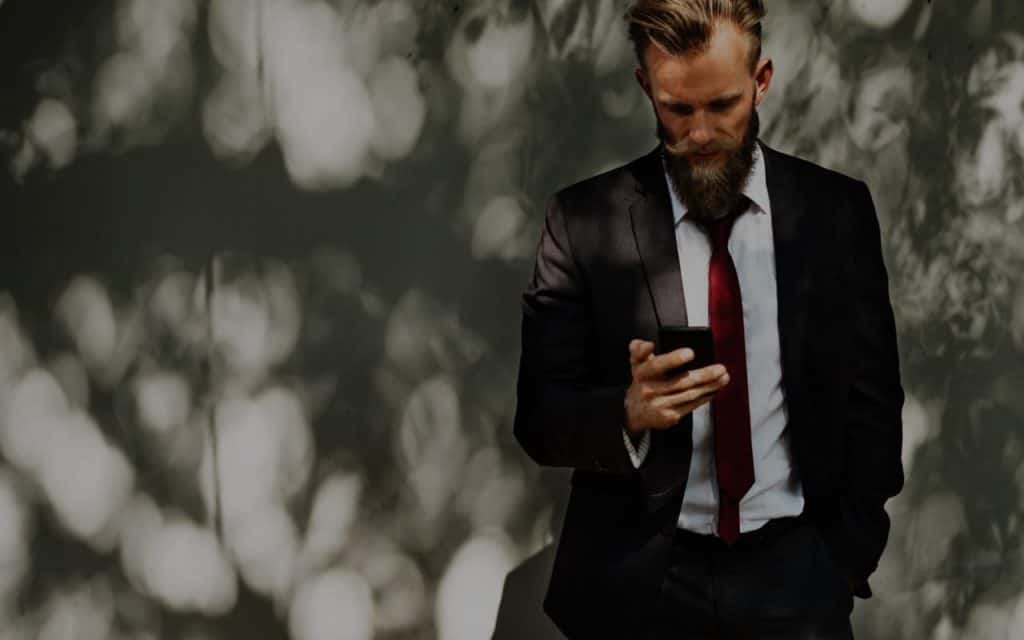
The life-changing art of karate
“Karate is not about winning over others. It is about winning over one’s self. Ultimately, the most challenging opponents we face reside from within our hang-ups, our insecurities, our prejudices. Overcome these and you will have truly won.” – David Walker, American novelist.
It took me a while to find Sportschule Lee. Like many independent studios in Berlin it’s tucked away in a labyrinth of endless courtyards. It’s dark so I almost miss the Japanese style sign that points me up four flights of stairs.
Once I reach the studio, slightly out of breath I’ll admit, it’s clear I’ve found the right place. The huge space is full of martial arts paraphernalia. Two fish tanks with oriental fish bubble away in the background and Japanese silks and wall hangings cover most of the walls. Window sills and shelves are crammed full of awards and trophies won by the world class trainers who teach here and the students they train. A Kung Fu class is just about to finish as I walk in. There’s an air of peace and mutual respect; a clear sign that I’m in an esteemed martial arts institution.
Today I’m trying out my first karate lesson. My teacher is Ilaria Schiavo, a karate Sensei who competed on the Italian International team for over a decade. She’s petite with dark hair and wears her Gi with a black belt. She’s softly spoken but conducts her class with such authority it’s clear she’s highly experienced in the art of karate.
We begin with a full-body warm up. I’m apprehensive; I tried Brazilian Jiu Jitsu about a year ago and spent the entire hour either flailing around on the floor or in the crease of somebody’s armpit. However, I learn early on that karate is about much more than fighting an opponent.
After a challenging warm-up of air squats, static sprints and burpees (Ilaria is clearly made entirely of muscle), we partner up to begin spin kick training. My partner holds a pad against her leg. I spin to kick it and almost fall over. Ilaria tells me “it’s all about aligning your body so you can use it as a weapon.” I attempt to kick the pad again and once more totally lose my balance. “It takes practice,” Ilaria says.
Karate is a fascinating discipline. It’s widely believed that China brought the discipline to Okinawa (Southern Japan) and then mixed with Okinawan martial arts traditions. Later in the 20th century Karate spread through all of Japan. This is when the original reading “chinese hands” of the symbols for “Karate” was changed to mean “empty hands”.
Our second exercise of the class is to kick our partner three times – once on the shin, then the hip, then up to the shoulder. The amount of flexibility and balance needed to perfect the basics of karate surprises me. One needs to master balance, strength, endurance, flexibility. And that’s just the tip of the iceberg.
Makotokai is a style of karate that Ilaria teaches along with her partner Andre. The style was founded by Paolo Bolaffio in 2004. He designed it using his forty years experience in the world of martial arts and Ilaria tells me “it takes principles from different martial arts from the Oriental world like Baguazhan and Tai Chi.”
As we delve deeper into the movements, Andre and Ilaria explain the reason why we move in this way. The class feels like a deep dive into the workings of the human anatomy. For one exercise Ilaria tells us to stand “like a sack of sand. This will make it more difficult for your opponent to push you over.” I follow her instructions and discover that by simply positioning my body in a certain way it is extremely difficult to knock me off balance.
Andre has been practising this form of karate for eight years. He enjoys the style of Makotokai because it delves and explores technique and detail. “Obviously you can kick and punch someone any way you like and cause pain. But this goes into detail of how to use your body properly. It’s fascinating because you learn a lot about your own body and the human body in general; what you are capable of and what you can endure.”
Whenever I speak with people who specialise in the martial arts I often hear them speak of a battle with “The Ego.” Often the most challenging part is managing your own expectations, laziness and motivation. “It definitely is about your ego,” agrees Ilaria. “It’s very transparent in martial arts. It’s all on your training and what you’ve done. You can’t lie. If you don’t train, you will be defeated. You have no chance against someone who trains more than you with more determination or discipline.”
So is there no such thing as natural talent when it comes to karate? “Of course,” Andre says “but only up to a certain point. After that you must study and practice.”
As the class continues I find myself able to focus and notice slow but steady improvements in my movement. After I repeat a kick twenty times I can tell my alignment has improved.
Ilaria began her karate journey in her home country of Italy when she was 11 years old. “Although we were just children I liked that I could see myself improve; I could see my progress. So I started to participate in tournaments which meant I always had goals. Then I went on to an international level.”
Ilaria competed in the Italian national and international team for ten years. “We did competitions in Norway, Slovenia, and the so-called Karate World Cup in Italy where we came second place. In this environment I learnt my limits; it motivated me to continue and constantly improve.”
After all of her years training at a world class level and competing internationally Ileria wanted to share her knowledge through teaching. “I think I have something to say after 20 years of experience,” she says. “I can help make someone else fall in love this discipline. My goal is to share my passion and encourage other people to enjoy karate.”
After almost two hours of karate I catch a glimpse of how much there is to learn from this sport. To find your passion in karate is a true gift. Of course, it’s a way to keep fit, but it’s also a journey of self-discovery; a way to defeat your inner demons and your battle with yourself. To master the art of karate is to take control of your own life and learn to respect others. It’s more than a sport or a hobby; it’s a way of life.
And after twenty years, I ask Ilaria, has she never felt bored of the sport? “No,” she tells me. “Because there’s always something new to learn.”
If you want to try karate Urban Sports Club has tons of martial arts partners across Germany, France, Italy and Portugal.
For more information on their classes take a look at Makotakai’s website and follow them on Instagram.



Comments